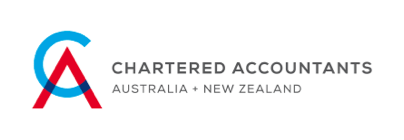For strata property owners, unexpected special levies, major building defects, or insurance gaps can create stress, disputes, and significant financial strain for owners and committees alike.
Allen Audit & Advisory Principal Richard Allen says regular strata audits are one of the most effective ways to prevent these issues, helping to identify risks early, strengthen governance, and maintain transparency.
“A well-run audit gives owners confidence their money is being managed responsibly, and that the strata scheme is financially sound for the long term,” says Richard.
Common and costly surprises
Richard says some of the biggest financial shocks facing strata entities include major building defects discovered too late; underfunded sinking funds leading to sudden special levies; unpaid levies from owners accumulating unnoticed; and uninsured or underinsured assets that result in out-of-pocket costs after damage.
“A regular audit could have flagged these early by comparing actual sinking fund contributions to forecasted needs, identifying discrepancies in levy collections, and reviewing insurance coverage against asset valuations,” he says.
Uncovering hidden issues
Richard says effective strata audits go beyond surface-level checks. “It involves verifying financial records against bank statements and invoices, checking levy arrears and ensuring proper follow-up, assessing sinking fund forecasts versus actual balances, and reviewing contracts and payments to detect overcharging or fraud,” he says.
“We often find small inconsistencies that, left unchecked, could turn into big issues.
“That’s why consistency and attention to detail matter so much in strata audits.”
Read the warning signs
Richard advises body corporate or committee members to keep an eye out for red flags. “These include frequent use of special levies, maintenance or repairs being delayed, and not having transparency around financial reporting,” he says.
“I would also be wary if a strata entity saw high arrears or inconsistent levy payments, and if any of its budget was unclear or missing.”
A real-world example
Richard points to a case where an audit revealed a strata manager had been double-billing for services.
“Conducting the audit meant the issue was caught early, and the committee was able to recover funds and change providers,” he says.
“It helped the entity avoid years of unnecessary overpayment, and is a great example of how audits can give peace of mind.”
Building confidence through audits
Richard says strata audits provide independent assurance that funds are used as approved, financial records reflect the scheme’s position, and governance and planning processes are sound.
“This transparency builds trust among owners and provides committees with a roadmap for continuous improvement,” he says.
“Without regular audits, strata schemes risk having fraud or mismanagement go undetected, facing unplanned expenses due to poor forecasting, losing trust among owners, and leaves committee members exposed to potential legal liability.”
Audits for smarter planning
Richard encourages strata entities to use audit reports as a planning tool. “These can guide adjustments to levy contributions, help improve sinking fund forecasting, and set proactive maintenance schedules and budgeting — so special levies can hopefully be avoided,” he says.
“And if concerns do arise, having independent audits to draw on helps clarify facts, stay transparent and reinforce accountability for managers and committees.
“An external auditor brings objectivity and credibility — which are vital when owners want reassurance their funds are in safe hands.”
Engaging an auditor
“Before engaging an auditor, check they’re experienced in strata schemes and truly independent,” advises Richard.
“A qualified specialist understands the nuances of strata law, levy management, and sinking fund planning, and will provide practical insights that support long-term financial health.”
Contact Allen Audit & Advisory to discuss how a proactive audit can protect your strata entities and owners from costly surprises.








